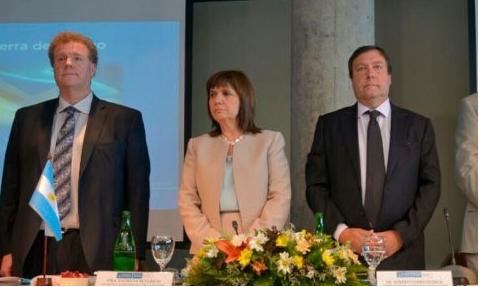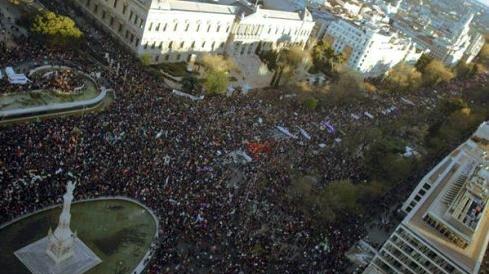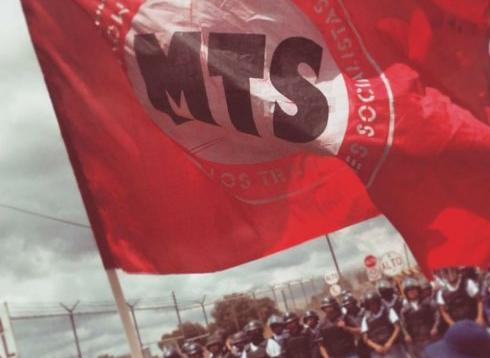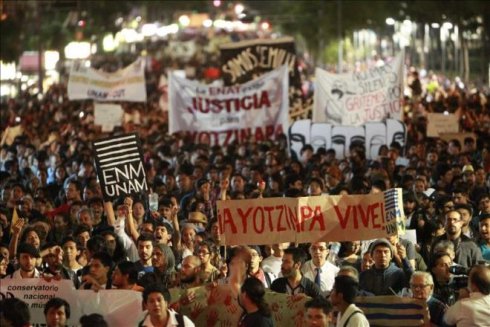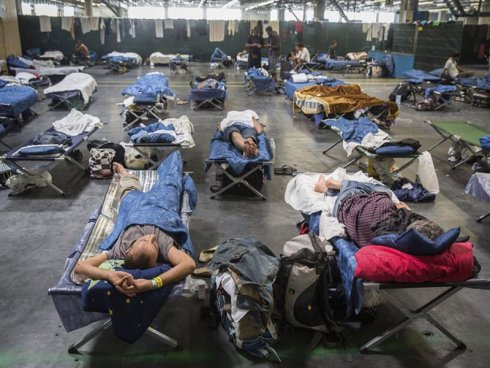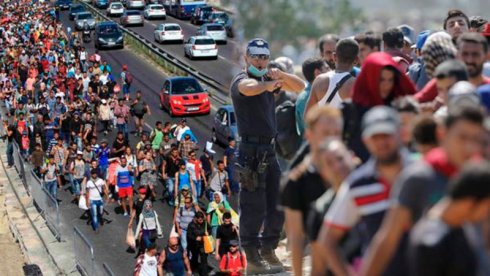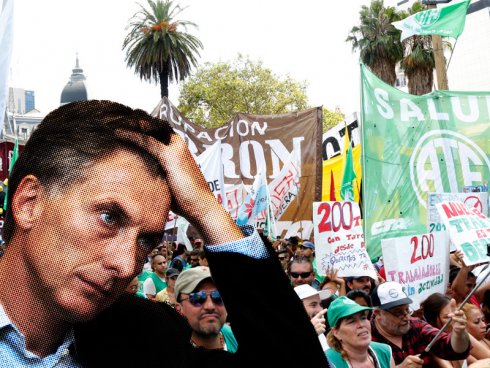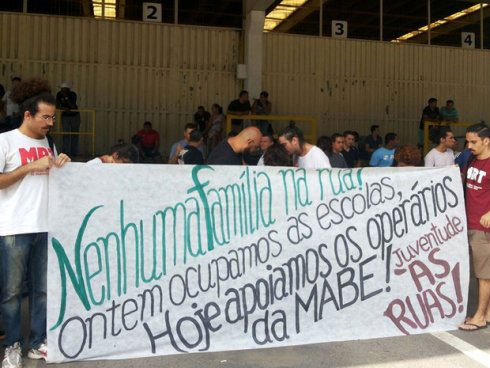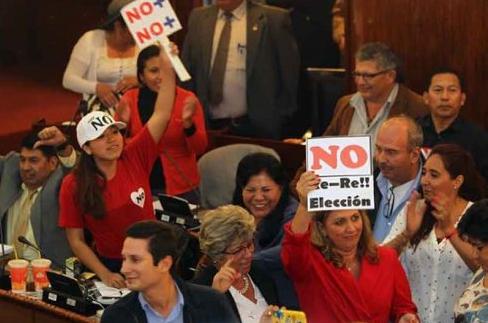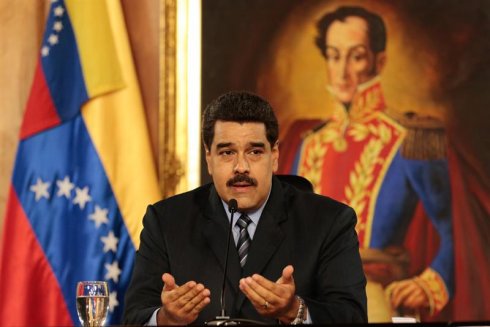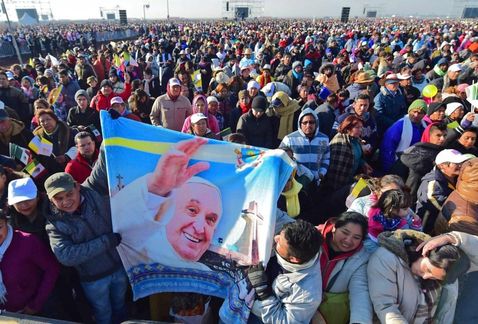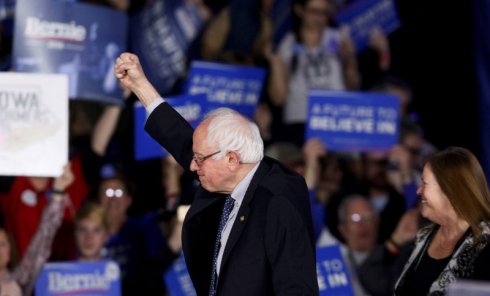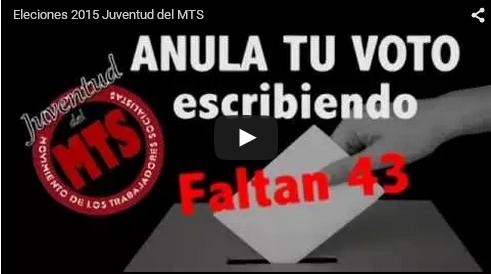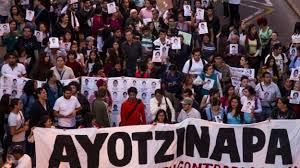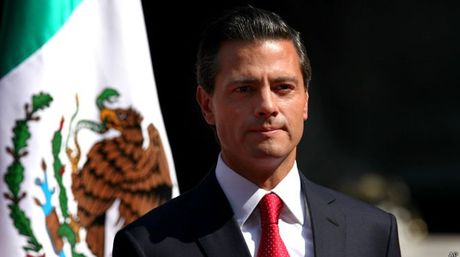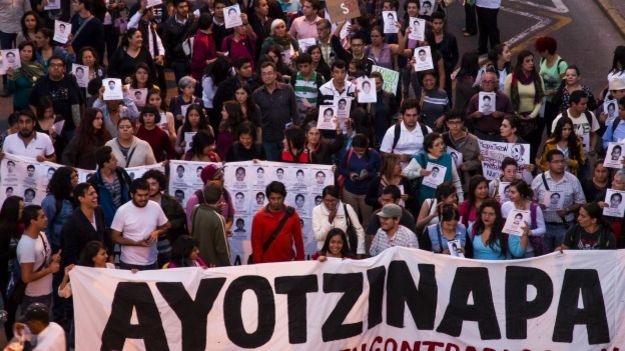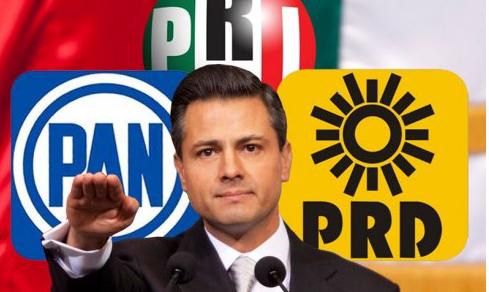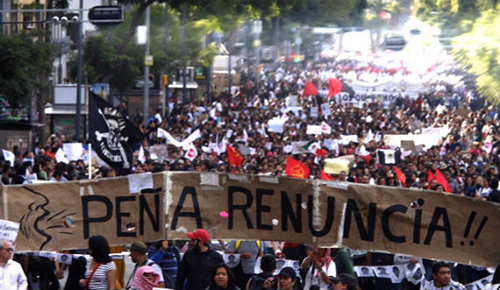Mexico: Guerrero has become a powder keg about to explode
16/10/2014
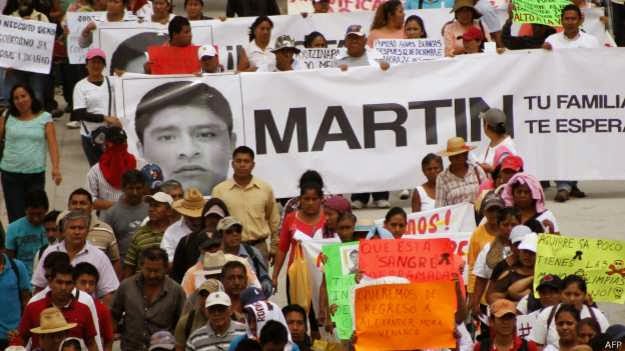
20 days after the massacre of the normalistas (students studying to be teachers) from Ayotzipana, Mexico and the disappearance of 43 of them, the indignation of the people in the country has grown, as has the disapproval of President Enrique Peña Nieto, who a few months ago was hailed by Time magazine and the international financial institutions for achieving the “Mexican miracle”, i.e. the privatization of Pemex.
Guerrero has become a powder keg about to explode
After the assassinations of these students, the rejection of the president’s demagogic and meaningless declarations has grown, as has the general perception that Peña Nieto is protecting the repressive government of Aguirre Rivero in Guerrero.
The rhetoric of the government sounds familiar to that of the “old” PRI of the 1970s. Years of authoritarianism and brutality against the youth such as that which occurred in Tlatelolco in 1968, the Halconazo in 1971 and the dirty war of the 1970s and ‘80s.
Actions demanding the return of the students
The collective memory of the people and the return of the “new” PRI have led to demonstrations across the country, with strikes in 35 schools, assemblies, road blockades, and the march today in Ciudad Universitaria in which several thousand students arrived from Ayotzinapa.
Meanwhile, the teachers of Guerrero, after burning the Congressional building two days ago, blocked highways, occupied banks, public buildings, McDonalds restaurants, and now prepare for a statewide strike next Friday demanding the resignation of Governor Ángel Aguirre Rivero, the arrest and punishment of the mayor of Iguala, José Luis Abarca Velázquez, who is now a fugitive. Joining the protests are retirees, who demanded the payment of delayed pension checks.
Members of the Federation of Socialist Campesino Students of Mexico took over three radio stations in solidarity with the students of Ayotzinapa, while in Michoacán, 2,000 students traveled to Guerrero in a show of solidarity with their fellow students, arriving in “occupied” busses and who are expected to be welcomed by the whole community.
This process could signal the arrival of protests from diverse sectors such as the peasant farmers from the regions of Nacajuca, Cárdenas and Comalcalco which shut down the State Department building in demand of reparations for the three thousand families affected by Pemex activities in their communities. On top of that, the conservative PAN party is asking to strip the State Department of many of its powers, taking advantage of its weakened position.
This is a potentially explosive situation which even the mainstream media has taken measures to avoid exacerbating by demonizing these protests. Today the government finds itself on the defensive, unable to respond to the disappearances of the students or to find the fugitive mayor responsible for the killings in Iguala and in which each new hidden grave discovered threatens to deepen the crisis of this government and shift the focus of these protests toward the president. Suddenly, Mexico has a new “tolerant” government which is “open to different viewpoints” and “respecting of democratic rights”.
It is the class struggle that has had been contained by the parties of the regime (PRI, PAN, PRD) that is today expressing itself and its indirectly challenging the “Pacto por Mexico” and its consequences. The explosive cocktail that Guerrero has turned into has the potential of reaching the main square of Mexico, the Zocalo. It’s evident that the mexican democracy is not so perfect after all.
The lack of faith in the system is fueling the mobilizations.
The repression against the normalistas students has created a scandal that is growing each day and its becoming international.
Students in different countries are protesting in front of the mexican embassies against the massacre of Iguala and are demanding the appearance of the disappeared disappeared normalistas.
The different education strikes in solidarity with Ayotzinapa are showing a growing tendency towards a united front of students and youth. The government has been incapable of closing the crisis and is allowing the united front tendencies to develop and continue to grow into different sectors. Meanwhile the movement based on the National Politecnico Institute continues pressuring for their demands and are indirectly containing the national discontent.
The indignation… takes to the streets.
The general population is showing signs of frustration against the police brutality and the close relations between the business class and the drug traffickers. Due to the overwhelming impunity and lack of governability, the government is seen as being responsible for this actions. Even though the population has not actively been involved in the mobilizations, it is supporting the movement passively and it is in agreement with the discontent against the government.
The current political situation is getting more complex for the government each day. The upcoming national mobilization demanding the appearance of the students in good health called for the 22nd of October will more than likely represent a leap forward in the the population’s dissatisfaction with the government, and it may present itself with greater challenges and objectives.
In order to quell the mobilizations, the government of Peña Nieto needs to completely fulfill the demands of the central player in the mobilizations, the “politecnico” movement. This movement has shifted itself from hoping for a quick negotiation with the government to a complete lack of faith in the government and are now demanding an immediate resolution to their demands.
However, a victory of the “politecnico” struggle would strengthen the student movement and would encourage the need for a national organization of students to stop the attack on education. This could mean a major blow to the aspirations of the PRI party to have another historical period in power if they were to win the majority of the State governments in the upcoming elections.
In any case, the electoral trap of an alternating democracy has become heavily delegitimize and the “streets” have begun to make their voices heard.
All of this is happening within a context of an international crisis, the 25% drop in the world price of oil, the IMF forecast of a slowdown in the world economy, all of which restrains, even more, the options of an economy which a few months ago was labeled a Mexican miracle.
